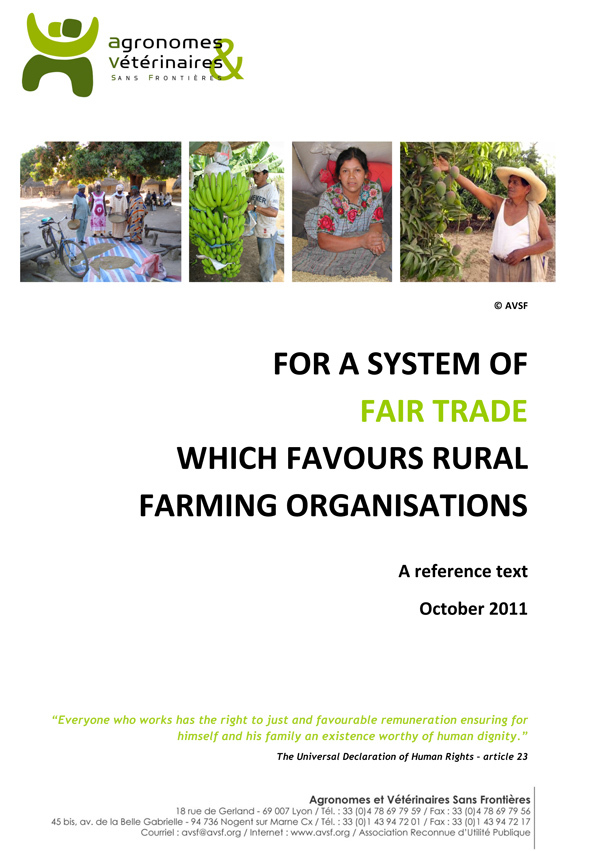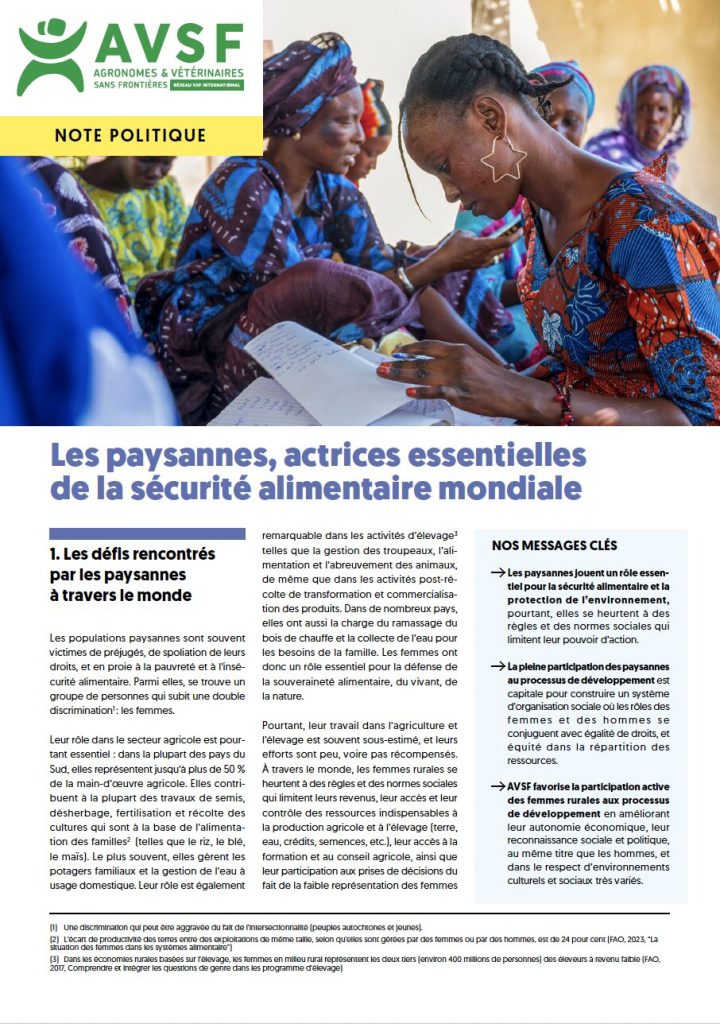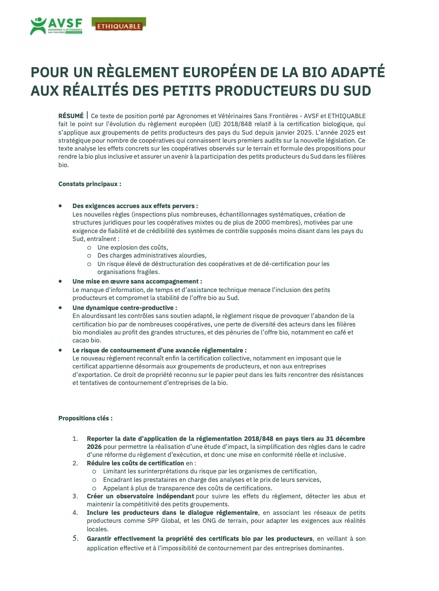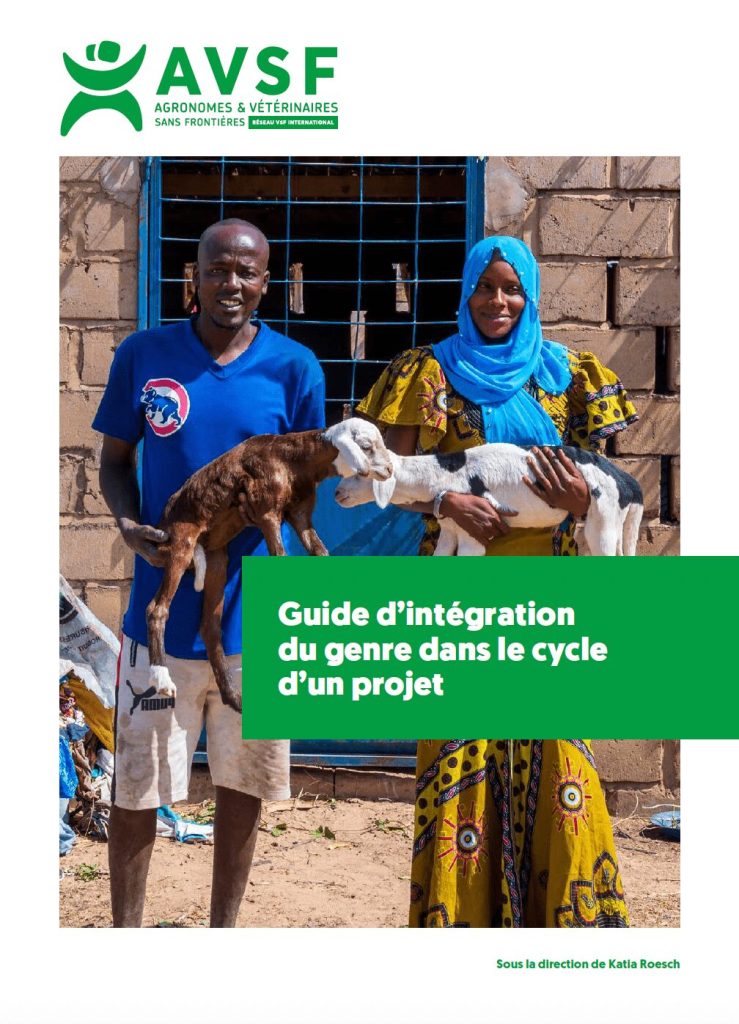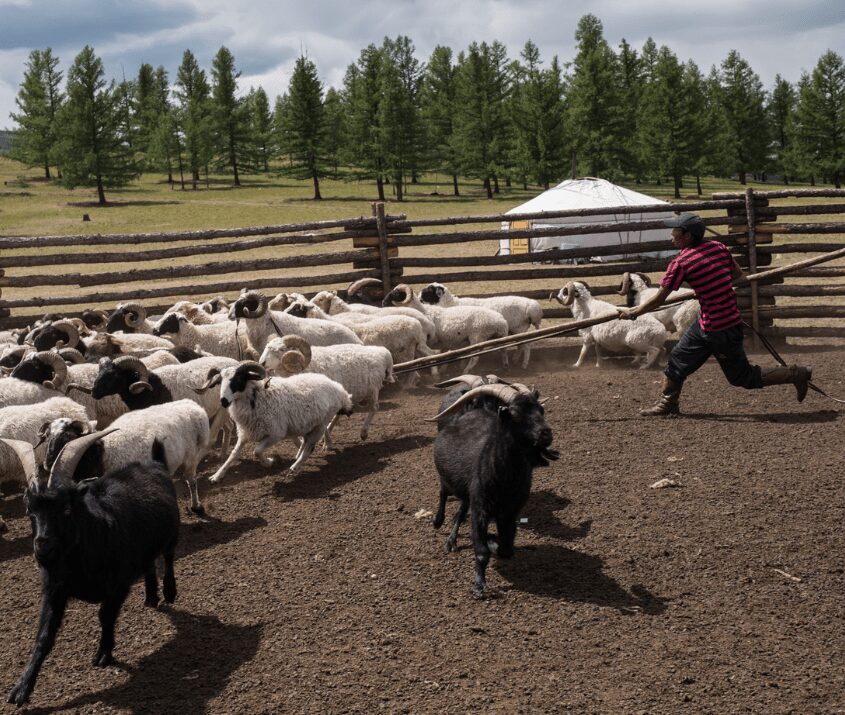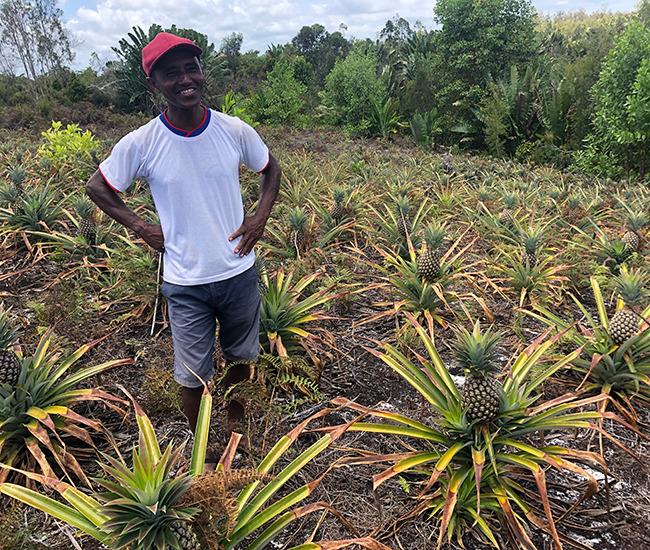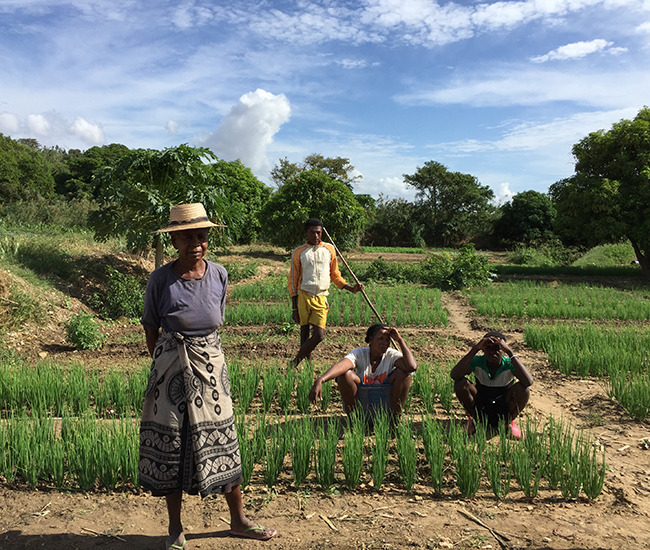AVSF and fair trade
For a fair trade that serves rural farming organizations
Reference text
Fair trade labelling was launched in the context of an economic crisis (at the end of the 1980s, beginning of the 90s) which was caused by low prices and the great difficulty faced by small producers in gaining access to markets. It must be recognised that in the space of two decades, fair trade has experienced a considerable boom and development which without doubt reaches well beyond the expectations of those who were behind the initial launch. AVSF has seen the impact of FLO-Max Havelaar fair trade labelling in working alongside an important number of Producers’ organisations in southern countries (more than 50 today), on local marginalised economies by increasing and stabilising revenue, creating jobs and improving access to social services. More significant is the impact when fair trade is in conjunction with measures intended to create an environment which is favourable for production (with technical help available, access to funds, training and an infrastructure) as well as the active participation of Producers’ organisations, with not only their services offered to members but also their interests defended equally in each respective country as well as at the heart of the Max Havelaar FLO fair trade system.
The basis of fair trade has, however, been overwhelmed due to an important increase in commercial growth, the inclusion of new modes of production, the increased participation of food industry multinationals and large distribution as well as the new systems of certification. These changes are at the root of questions arising on the one hand for the small producers in the South, worried about the current place which they occupy in fair trade and their place in the future, and on the other hand for consumers in the North who are mindful of respecting the foundation of fair trade and are responsive to prices and guarantees. In fact, the development of power struggles and of the role of different agents within the fair trade value chains have been at least in part a detriment to small producers and to the business structures which were historically engaged in defending a system of fair trade where a fair redistribution of the value added is assured, favouring and protecting family farming. Today the major issue for fair trade, and for that matter even for the Max Havelaar FLO’s labelling system and other new labels being developed, is in reinforcing this choice of agribusiness model.
AVSF wishes for this reference text to firstly provide its technical teams and partners in the south with information and training support with regard to fair trade in as concisely, completely and as up-to-date a manner as possible. Secondly, thanks to a well-supported sales pitch and a clear position in institutional terms, AVSF intends to make an active contribution to reflexions upon fair trade, as well as to the work and debates concerning the present and future challenges involved in fair trade. The association seeks in particular to have an influence on the strategic and technical direction taken by various agents in the North, with the goal of effectively maintaining the interests of small producers at the heart of the system. This is with the overall aim of keeping fair trade as a tool for development for marginalised rural populations. Beginning with a presentation of historical reference points for fair trade and its main changes during the last two decades, the analysis of the impact fair trade has had on producer families, their organisations and their territories, has resulted in this reference text which sets forth AVSF ‘s strategies for action in favour of a fair trade which serves rural farmers organisations.
